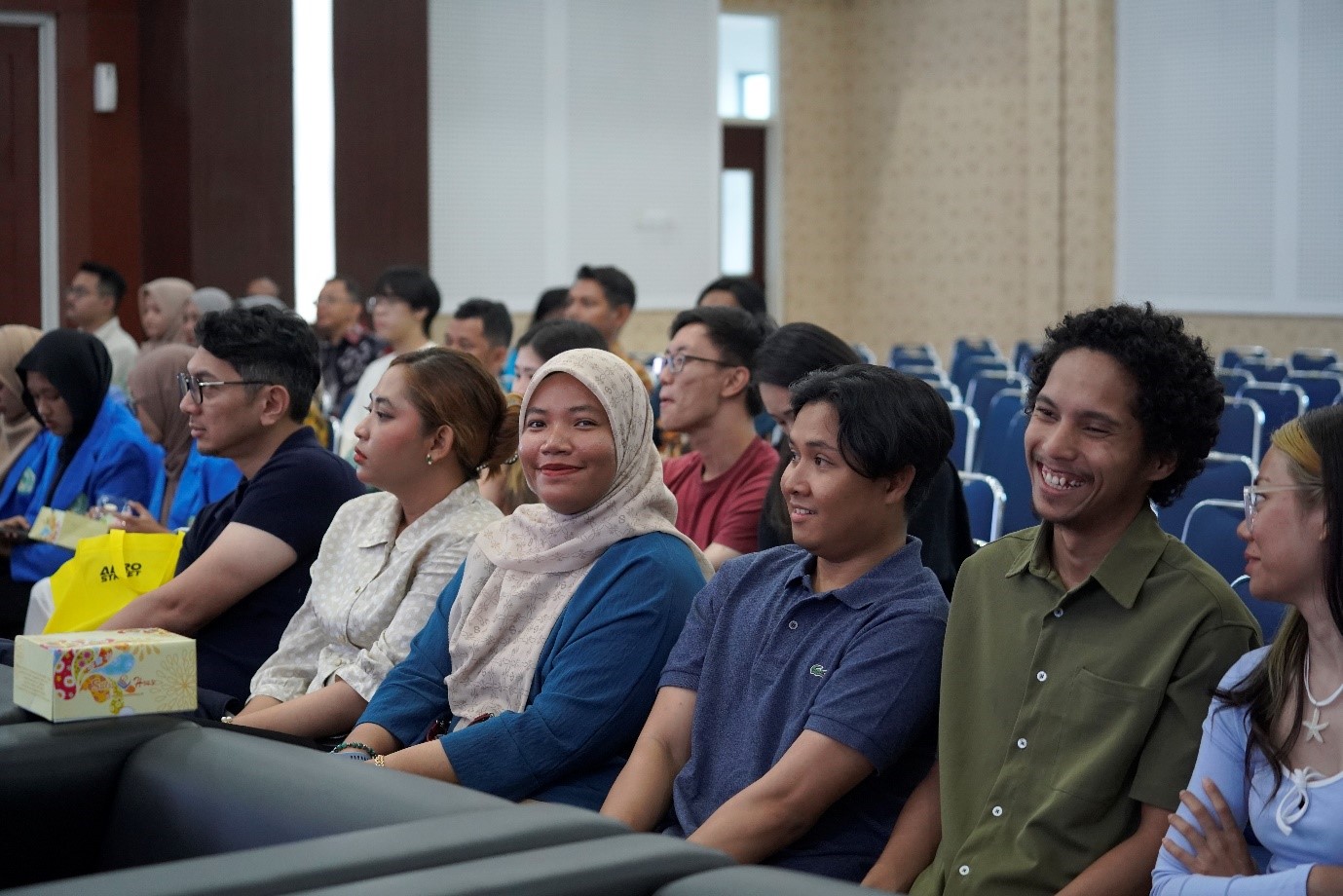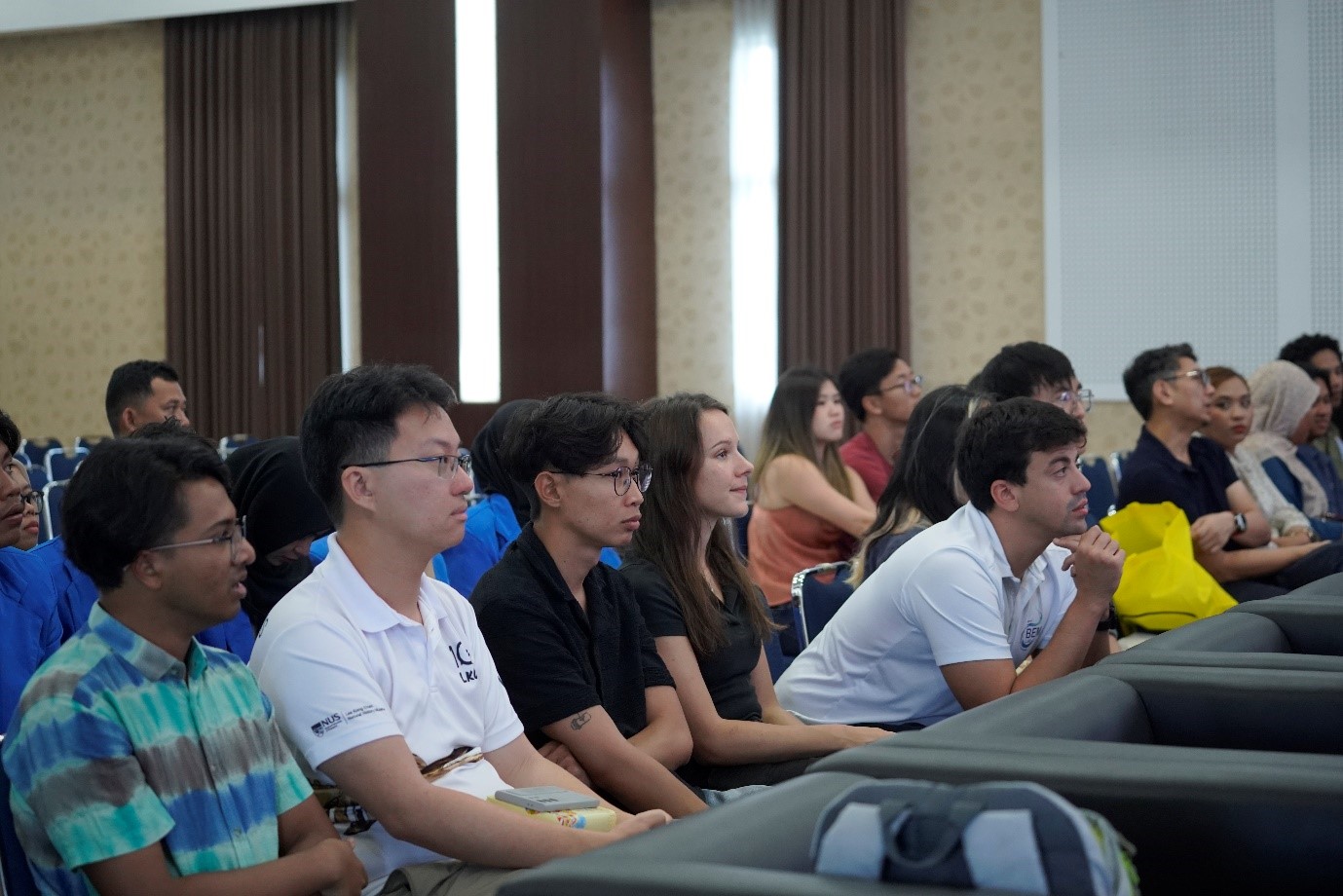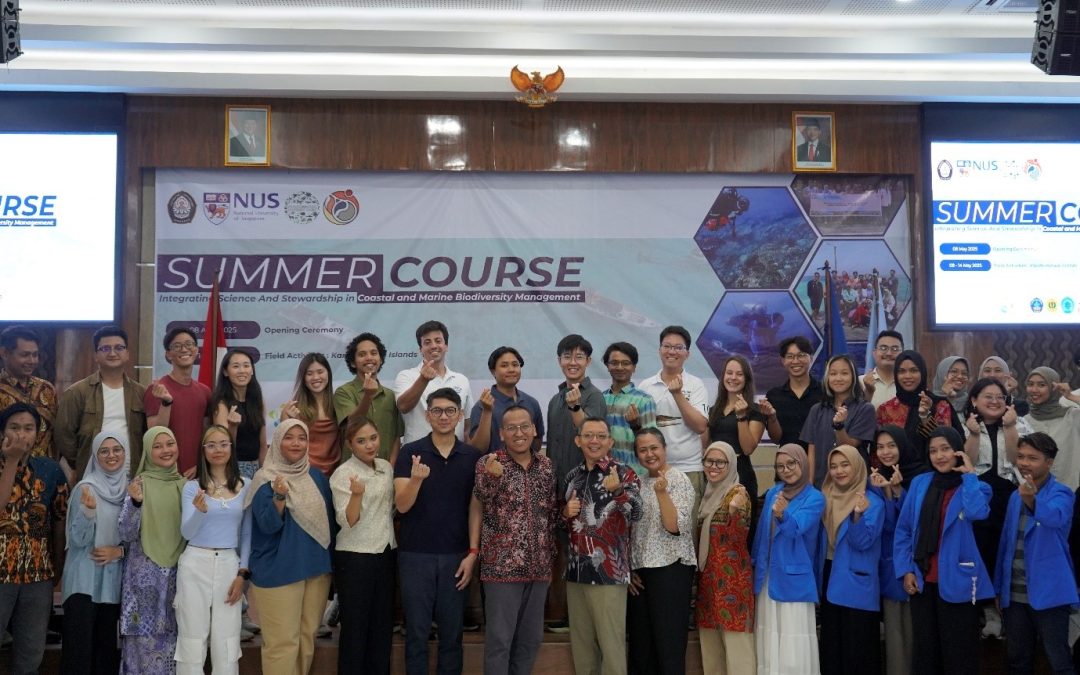The Department of Biology, Faculty of Science and Mathematics (FSM), Diponegoro University (UNDIP) officially launched the Summer Program themed “Integrating Science and Stewardship in Coastal and Marine Biodiversity Management” on Thursday, May 8, 2025, at the 6th floor of Acintya Prasada Building, FSM UNDIP. The program is a result of collaboration between UNDIP and the National University of Singapore (NUS), supported by the Ecology and Biosystematics Laboratory and the Diponegoro Biodiversity Project.
The opening ceremony was attended by participants and speakers from various domestic and international institutions and was officially opened by the Vice Dean for Resources of FSM UNDIP, Dr. Eng. Adi Wibowo, S.Si., M.Kom. In his opening remarks, he expressed his hope that this event would contribute positively to the development of knowledge and international collaboration in the sustainable management and conservation of coastal biodiversity.

The program is attended by 49 participants and speakers from seven countries, namely Indonesia, Singapore, Malaysia, Germany, Bangladesh, and Brazil. The program is organized with the support of the World Class University (WCU) Program.
The 2025 Summer Course aims to introduce the rich biodiversity of Indonesia, particularly in the Karimunjawa Islands, to researchers from both domestic and international institutions. Participants receive hands-on training in various ecosystem data collection techniques, including terrestrial ecosystems, mangroves, seagrasses, coastal areas, and coral reefs. Additionally, participants also study the socio-economic aspects and ecotourism potential of the region.

One of the highlight activities in this program is the introduction of the Autonomous Reef Monitoring Structure (ARMS) method, a marine biodiversity monitoring technique that is part of a research collaboration between the Department of Biology, FSM UNDIP, and the Lee Kong Chian Natural History Museum, National University of Singapore (NUS).
This program not only serves as a platform for multidisciplinary and cross-cultural learning but also as part of UNDIP’s commitment to strengthening its position as a World Class University through global networking and tangible contributions to sustainable environmental issues.
Further information about the program has also been covered by various media outlets and can be accessed through the following links:
-
RRI Semarang – UNDIP Gelar Summer Program di Karimunjawa
-
Helo Indonesia – FSM UNDIP & National University of Singapore Gelar Summer Program di Karimunjawa
-
USM TV – FSM UNDIP & National University of Singapore Gelar Summer Program di Karimunjawa
-
Kampuspedia – FSM UNDIP dan National University of Singapore Gelar Summer Program
[Public Communications/FSM/Meilia]

